How Stress Levels Kill Testosterone
The Effect of Stress on Testosterone
 Stress can lead to many of the symptoms of low testosterone. Stress is one of the earliest and most important hormones when we were the hunted and our fight or flight instincts kept us alive, not happy or healthy. Today is a different time and we rarely need these instincts the same way we did when we were not at the top of the food chain but our body still reacts to stress in the same way we have been programmed. Creating cortisol is just is a much higher priority for the body than creating testosterone when it is stressed.
Stress can lead to many of the symptoms of low testosterone. Stress is one of the earliest and most important hormones when we were the hunted and our fight or flight instincts kept us alive, not happy or healthy. Today is a different time and we rarely need these instincts the same way we did when we were not at the top of the food chain but our body still reacts to stress in the same way we have been programmed. Creating cortisol is just is a much higher priority for the body than creating testosterone when it is stressed.
Stress causes our adrenal glands to secrete cortisol which prepares our bodies and minds to handle the stressful situation. In small amounts, cortisol is fine and can be very useful. Elevated cortisol levels for prolonged periods damage our bodies and minds.
Several studies have shown a link and correlation where increased cortisol levels often leads to low testosterone. That does not mean that supplemental testosterone or naturally increased testosterone will lower your cortisol levels but evidence does show that.
Here are some practices to help manage your stress and cortisol levels
- Exercise regularly
- Don’t smoke
- Avoid excessive caffeine and alcohol
- Meditate for 20 minutes each day
- Take a break when you feel stressed.
- Remove yourself from that situation and feeling. Get up for a walk, stretch your legs and breath in deeply
- Practice deep breathing exercises
- Get adequate sleep
- Focus on being more resilient in the face of stress. Don’t let stress manage you. Decide how you want to allow things to affect you.
There is also a downward cyclical effect when someone is overweight, fatigued and suffering from low libido and erectile dysfunction. This downward cycle can lead to stress and increased cortisol. Naturally increasing your testosterone, or getting help from a specialized physician through a Testosterone Replacement Therapy program can help you lose weight, gain energy, increase libido and decrease erectile dysfunction. Al of this should lead to decreased stress and reduced cortisol levels.
Hormone Therapeutics aims to help people looking to improve and optimize their health through natural means or through the guidance of our physicians.
Don’t miss out our free weekly tips and news on Low T, hormone balancing, healthy living, nutrition and a lot more.
Want more?

Sign up today and Get our ebook, ‘Naturally Increase Your Testosterone Levels’ absolutely FREE.
How Stress Levels Kill Testosterone
Saleamp Design December 6th, 2016
Posted In: Low T Info
Tags: adrenal, alcohol, caffeine, cortisol, erectile dysfunction, exercise, meditate, sex, sleep, stress, testosterone level, Testosterone replacement therapy
How does Testosterone Affect Sexual Health?
Can testosterone improve sexual health?
Many factors fuel the sexual health of men as well as their sexual performance, ability to perform and changes in their ability to function as they once could. Low testosterone plays a significant factor in all of these and treating Low T can improve interest in sex, sexual function and sexual performance.
The Effects of Low T on Sexual Health
While we do understand that testosterone production comes from a healthy HPA Axis, or communication between your Hypothalamus, Pituitary Glands, Adrenals and Testicles, science still does not understand exactly how testosterone improves sexual health or performance. As you probably noticed in High School, College or amongst your friends, there is no normal level of sexual interest amongst men or women.
Like your testosterone levels, it peaks around 19 and usually slowly declines for the rest of your life. Each person takes a different path, however, and declining sexual interest is typically tied to declining testosterone levels. These levels can follow a steady decline, or can be accelerated by health issues, stress, poor sleep and even by keeping sexually active. Many men can lose sexual interest at normal testosterone levels or maintain sexual health even at low testosterone levels but as testosterone levels get depleted it will universally effect sexual interest and performance.
One study of Men in the NE of the US showed 11% of men had a lack of sex drive. The researchers also found 28% of men with low testosterone levels had a low libido which means that men with low testosterone levels were 256% more likely to have low sex drive or low libido. The average age of the study participants was 47.
Low Testosterone and Erectile Dysfunction

Erectile Dysfunction, or ED, can be caused by many health problems including low testosterone, atherosclerosis (hardening of the arteries), diabetes, high blood pressure and high cholesterol. Those last three items all cause hardening of the arteries. If they are damaged, the penis has difficulty dilating and bringing sufficient blood flow required for an erection. Testosterone therapy can lead to increased libido and interaction and connection between the brain and penis.
Viagra is an example of an oral PDE5 inhibitors that encourage an increase in nitric oxide which dilates the blood vessels and encourages more blood flow to the penis. Three potent selective PDE5 inhibitors (sildenafil (Viagra; Pfizer), tadalafil (Cialis; Lilly), and vardenafil (Levitra; Bayer)) are currently available. Testosterone therapy will often increase the libido and sexual function to erase Erectile Dysfunction, but often our physicians will prescribe a combination with PDE5 inhibitors as well.
Studies are showing that men with classic hypogonadism, or low testosterone, have a reduced response to PDE5 inhibitors and see a significant response improvement with Testosterone Therapy. For patients who fail to see ED improvement following TRT and PDE5 inhibitors we can prescribe and test the direct injectable Trimix.
The Connection of Testosterone Levels and Sexual Health
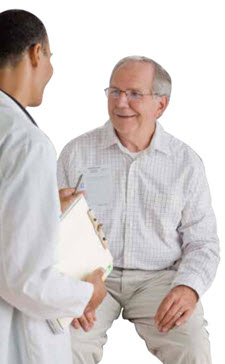 While this sounds like a juvenile sex joke, we are now seeing that lowered testosterone levels lead to a decreased sex life, but that a decreased sex life also can lower ones testosterone levels in a study at the University of Sydney in Australia.
While this sounds like a juvenile sex joke, we are now seeing that lowered testosterone levels lead to a decreased sex life, but that a decreased sex life also can lower ones testosterone levels in a study at the University of Sydney in Australia.
Researchers followed 1,700 men over the age of 70. The study asked questions and measured a number of things. The study tracked the ability to keep and maintain an erection. It measured the frequency that sexual activity led to ejaculation (through masturbation or sexual intercourse). The study also tracked libido and sexual health versus earlier times in their lives.
During the study, all of the men had blood tests regularly taken and the following tests measured: Total Testosterone, Free Testosterone, Estrogen, SHGB and some other hormones.
Researchers discovered a 10% reduction in testosterone levels led to a noticeable decrease in sexual activity but no change in the number of erections. Another study showed that testosterone levels increased on night after sexual activity without any increase on nights where there was no sexual activity. Physicians are concerned that a lack of sexual activity can accelerate low testosterone.
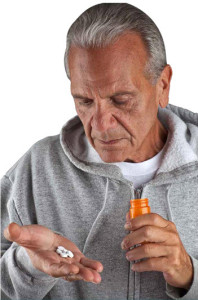 A further study showed that men taking Cialis had higher testosterone levels than men taking Viagra. Both drugs are PDE5 inhibitors to boost nitric oxide and blood flow to the penis. Cialis, however, last 36 hours for most people rather than 6-8 hours. Cialis users typically have more intercourse over this extended time period.
A further study showed that men taking Cialis had higher testosterone levels than men taking Viagra. Both drugs are PDE5 inhibitors to boost nitric oxide and blood flow to the penis. Cialis, however, last 36 hours for most people rather than 6-8 hours. Cialis users typically have more intercourse over this extended time period.
The researchers concluded that “as it is unlikely that the two drugs have a different direct effect on the pituitary-testis axis, this effect is probably due to the higher frequency of full sexual intercourse.”
A Chinese study observed a group of men that abstained from ejaculation for one week and had their testosterone levels tested each day. Research showed that abstaining for 6 days had no effect on testosterone levels, however, on the seventh day the testosterone levels surged to 145.7% of the baseline then plummeted on the 8th day.
The researchers believe the testosterone surge was the result of a negative feedback suppression of Luteinizing hormone (LH secretion) which is essential for testosterone production.
Hormone Therapeutics aims to help people looking to improve and optimize their health through natural means or through the guidance of our physicians.
Don’t miss out our free weekly tips and news on Low T, hormone balancing, healthy living, nutrition and a lot more.
Want more?

Sign up today and Get our ebook, ‘Naturally Increase Your Testosterone Levels’ absolutely FREE.
How does Testosterone Affect Sexual Health?
Saleamp Design November 15th, 2016
Posted In: Low T Info
Tags: atherosclerosis, Bayer, blood flow, boner, Cialis, diabetes, dilates, ED, erectile dysfunction, erection, high blood pressure, high cholesterol, hypogonadism, inhibitors, intercourse, Levitra, LH, LH secretion, libido, Lilly, Lutenizing hormone, nitric oxide, PDE5, PDE5 inhibitors, penis, Pfizer, pituitary, sex drive, sexual health, sexual performance, sildenafil, tadalafil, testes, testicles, testosterone level, testosterone therapy, trimix, TRT, vardenafil, Viagra
Enhance Your T Levels with this Testosterone Boosting Diet
 A Sample of Testosterone Boosting Diet
A Sample of Testosterone Boosting Diet
Diet plays a huge role in testosterone production. Our organs and glands need specific minerals like zinc and magnesium for the initiation of testosterone production. The Leydig cells require cholesterol to fuel the production of testosterone. Adding testosterone boosting foods like broccoli, cauliflower, and cabbage will also assist in one’s testosterone levels as well as Testosterone : Estrogen ratio by flushing estrogens from the body that lower our testosterone levels.
Increasing fat and cholesterol in-take also helps boost testosterone production. That’s the origin of the Rocky training on raw eggs myth. Loading up on bacon, eggs, nuts and steak certainly has its detractors as does increasing cholesterol consumption but this is all about testosterone boosting diet.
Here’s an example of one man’s journey to boost his testosterone through his own “testosterone boosting diet” that saw a dramatic increase by testosterone optimizing his diet, exercise and sleep (this is not what we are recommending but an example):
Testosterone Boosting Diet Sample Meal Plan
Breakfast:
Bacon and Eggs . . and more bacon . . and more eggs
Weekdays: Three slices of bacon and three whole eggs. This provided the fats and cholesterol the body needs to make testosterone. Beware nitrates if you eat this much bacon and consider nitrate-free bacon.
Weekends: Mexican Breakfast burritos or pancakes.
Lunch:
The Man Salad
A properly prepared Man Salad packs as many Testosterone boosting foods as he could find:
 Spinach/Spring Salad Mix
Spinach/Spring Salad Mix
The salad base using organic greens. Spinach and other leafy green vegetables contain minerals like magnesium and zinc, which have been shown to aid in testosterone production
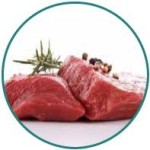 Meat
Meat
Beef provides our bodies with the protein needed to create muscle and the fats and cholesterol to make testosterone. His philosophy was the fattier, the better.
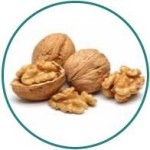 Nuts
Nuts
A handful of almonds, Brazil nuts or walnuts. Nuts are fat bombs providing cholesterol for the Leydig cells need for T production.
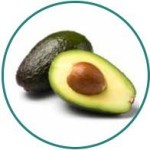 Avocado/Olives
Avocado/Olives
Avocados and olives provide the good fats needed for healthy testosterone production.
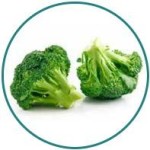 Broccoli
Broccoli
Broccoli contains high levels of indoles. This compound reduces bad estrogen that hurt testosterone levels.
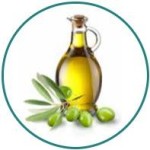 Olive Oil
Olive Oil
Olive oil helps Leydig cells (which produce testosterone) absorb cholesterol better which assists in testosterone production. More cholesterol absorption = more testosterone.
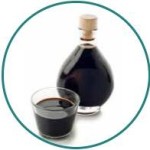 Balsamic Vinegar
Balsamic Vinegar
Mostly for taste and to help keep your insulin in check.
Testosterone Boosting Diet: Snacks
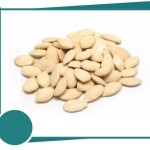
During the day he snacked on testosterone-healthy foods like nuts, pumpkin seeds, and broccoli and occasionally dark chocolate.
An added testosterone benefit to a high fat diet with balanced protein and carbs is can help shed some body fat (this man went from 18% to 12% body fat). Studies show that high fat diets actually contribute to increased body fat loss. And as we discussed earlier, as you lose body fat, your T production ramps up. Remember that this is not a long term solution but one man’s 90 day example.
 Dinner
Dinner
Whatever (in moderation)
He ate what the family was having: chili, chicken and rice, enchiladas, etc. He was not overly worried about carbs but watched his portions.
Results
This man doubled his Total Testosterone levels over 120 days but was doing so many healthy things in addition to the testosterone boosting diet. The diet was not unconventional with the exception of the fat and cholesterol intake. He didn’t follow a strict low-carb or Paleo diet. Research is showing that high protein, low carb diets can decrease testosterone levels.
Cholesterol Levels from this approach
His full lipid screening showed the following 90 days on the testosterone boosting diet:
Total Cholesterol: 202 mg/dL (Optimal range: < 200 mg/dL.)
HDL Cholesterol (“Good” Cholesterol): 77 mg/dL (Optimal range: > 60 mg/dL)
LDL Cholesterol (“Bad” Cholesterol): 112 mg/dL (Optimal range: 100-129 mg/dL.)
Triglycerides: 65 mg/dL (< 150 mg/dL is considered normal; < 100 mg/dL is optimal)
By the raw numbers, his overall lipid screening was good despite the high total cholesterol. His results were more interesting when examining the ratios doctors look at for heart disease risk.
Total cholesterol/HDL Ratio: 2.6:1 (Normal < 5:1; Optimal < 3.5:1)
LDL/HDL Ratio: .68:1 (Normal > .3:1; Optimal .4:1.)
Triglycerides/HDL Ratio:
.84:1 (Optimal < 2:1)
Despite gorging on bacon, eggs, whole milk, and steak for four months, he still had healthy cholesterol levels.
Hormone Therapeutics aims to help people looking to improve and optimize their health through natural means or through the guidance of our physicians.
Don’t miss out our free weekly tips and news on Low T, hormone balancing, healthy living, nutrition and a lot more.
Want more?

Sign up today and Get our ebook, ‘Naturally Increase Your Testosterone Levels’ absolutely FREE.
Enhance Your T Levels with this Testosterone Boosting Diet
Saleamp Design November 8th, 2016
Posted In: Testosterone Therapy
Tags: avocado, bacon, beef, broccoli, caveman, cholesterol, diet, eggs, estradiol, HDL, LDL, Leydig cells, Lipid, low carb, nuts, olives, paleo, protein, ratio, spinach, steak, testosterone boosting diet, testosterone diet, testosterone level, triglycerides, whole milk


 A Sample of Testosterone Boosting Diet
A Sample of Testosterone Boosting Diet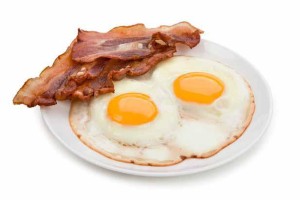
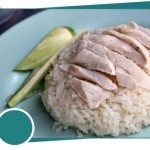 Dinner
Dinner